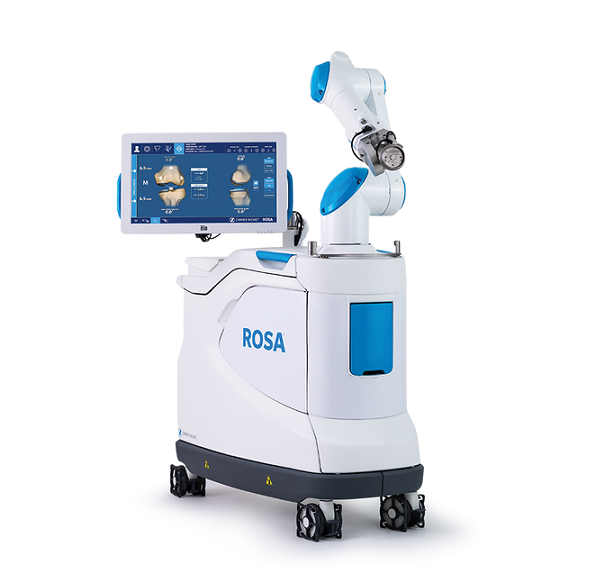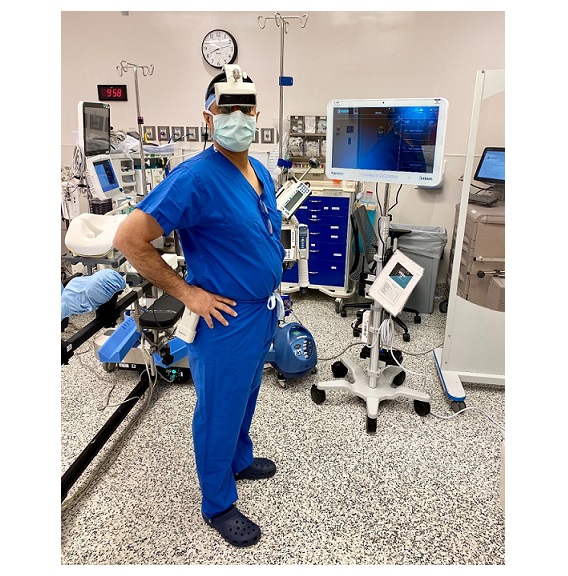Elizabeth Hofheinz, M.P.H., M.Ed.
Residents…their exposure to the contortions of the OR is limited, so they wouldn’t have musculoskeletal (MSP) pain, right? Read on.
Inspired by his own real-life musculoskeletal travails during residency, an orthopedic surgeon, Kade McQuivey, M.D. of Mayo Clinic, set out to investigate MSP among American orthopaedic surgery residents. Dr. McQuivey and his team also looked at resident behaviors, attitudes, and beliefs toward surgical ergonomics.
Their work, “Surgical Ergonomics and Musculoskeletal Pain in Orthopaedic Surgery Residents: A Multicenter Survey Study,” was published in the Journal of the American Academy of Orthopaedic Surgeons Global Research and Reviews.
“I became interested in this idea while recovering from surgery from an injury I sustained in the OR due to poor surgical ergonomics,” stated Dr. McQuivery to OSN. Prior to my injury it was my assumption that only surgeons with chronic cumulative exposure to the OR were at risk for musculoskeletal OR related injuries. As a resident it was alarming to be debilitated with pain at such an early point in my career. I was curious to understand on a wider scale the resident experience with musculoskeletal pain together with their beliefs, behaviors and attitudes on procedural related pain and surgical ergonomics.”
“Teaching proper surgical ergonomics and addressing musculoskeletal pain in surgical residents is crucial to decreasing chronic pain that could ultimately impact career longevity. This is not only important for the individual resident but also for society as demand for orthopaedic surgeons in the United States continues to grow.”
The researchers emailed to all 78 program directors of American College of Graduate Medical Education–accredited orthopaedic surgery residencies in the U.S., who were asked to distribute them to their residents. Three sections were included in survey: symptoms by body part, attitudes and coping mechanisms of MSP, and demographics.
They found:
- Rates of procedural related musculoskeletal pain among residents is extremely high (97%). In addition, 20% of residents reported chronic pain (>30 days continual pain).
- A positive association was found between higher musculoskeletal pain and lower work satisfaction (P = 0.005), burnout (P = 0.04), and callousness toward others (P < 0.0001).
- Spine was the subspecialty identified by residents that was most associated with higher MSP because (selected by 62% of residents); this was followed by trauma (54% of residents) and adult joint reconstruction (52% of residents).
- Among 34.3% of the residents, the MSP experienced during a specific rotation plays a notable role in deciding which fellowship they will pursue.
Dr. McQuivey stressed to OSN: “Future studies should look to analyze surgical posture and ergonomics in orthopaedic residents in real time. The results of these studies can help inform and create training programs to establish intraoperative guidelines to ensure appropriate ergonomics and intraoperative posture among trainees.”
“Poor surgical ergonomics can lead to missed work and reduced productivity. This not only affects surgeons as individuals, but it also places increased burden and caseload on their colleagues. This is not only important for surgeons, or their group partners, but also for society at large. We are caregivers for our respective communities, and as such we must learn to care for ourselves as we would for our patients.”








